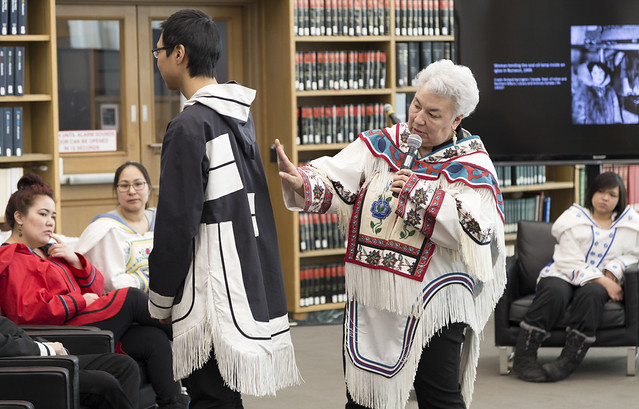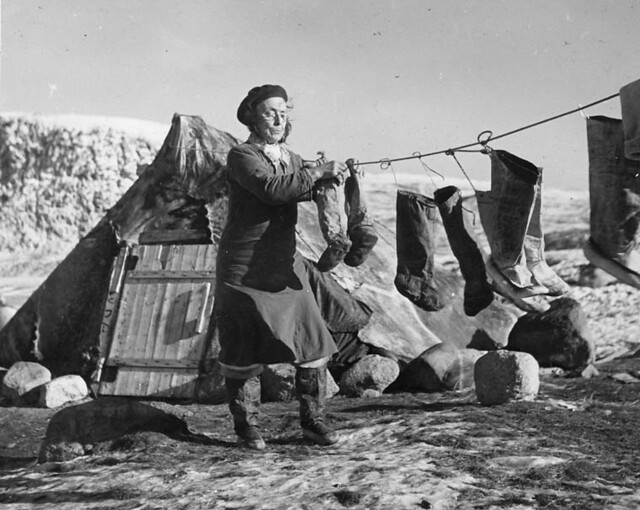Manitok Thompson has been frustrated by Facebook lately for blocking her sales of products she has made from the skins of local animals. According to a news story published early last week, the Inuit lady used to rely on the social media giant to reach out to potential customers around the world with her posts about the sealskin mitts, mink-lined hats, and about 40 other products she makes out of animal skins.

But no longer. Despite the fact that in Nunavut it is perfectly legal to harvest and use objects made from those animals, Facebook decided in August to block posts that are trying to sell products made from those animal skins. Thompson argues that she is not doing anything that is illegal. “It’s been very, very frustrating,” she said.
The social media giant blocked a listing of a sealskin hat in May 2018 though it subsequently apologized for its error. But in August 2019 the company changed its policies to prohibit posts that try to sell endangered or threatened animals or their parts. This new policy appears to block the sale of products made from seals, even ones that are neither threatened nor endangered.

The news story last week quotes Facebook’s response to the controversy. In part, the company maintains, “While we recognize that not all seal species or seal populations are endangered or threatened, many are. As a result, we enforce a broad global standard to ensure the most vulnerable species globally are not put at risk.”
The statement goes on to admit the need to be sensitive to “cultural considerations” of the Inuit and their traditional uses of local animals, but they also claim their recognition of the loss of species globally is essential. Another spokesperson with Facebook added, “We understand that Indigenous peoples and those in Northern Canada have unique needs when pursuing their traditional livelihoods across our platforms.”
Ms. Thompson is aware of the forms available on Facebook with which crafters can appeal the rejections of their posts selling animal products. But filling out the forms without any guarantee they’ll be approved is a hassle. Living in Nunavut is expensive, she argues. There is a lack of jobs in the territory and Facebook is a great way of reaching out to potential customers around the world. “But Facebook is blocking people who are trying to sell their products when they’re trying to put food on the table,” she said.
Thompson, formerly a member of the Nunavut Legislative Assembly and a cabinet member, worries about a future where crafters are unable to effectively sell their traditional products to a worldwide market. She and others in the business are urging the major Inuit organizations to engage the social media firm about the impact of their policies on the Inuit and the Canadian North.